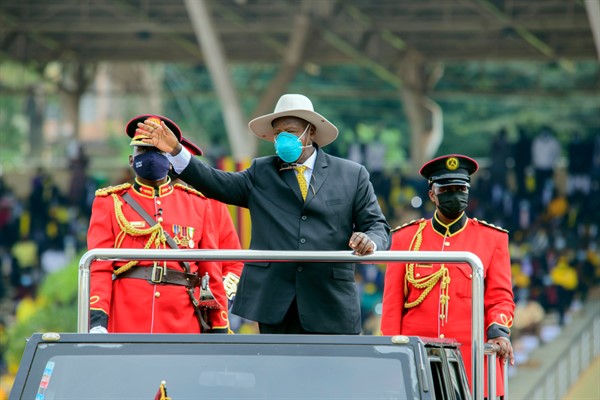KAMPALA, Uganda—On May 12, after 35 years in office, Yoweri Museveni was sworn in for his sixth elected term as president of Uganda. The ceremony marked the end of a year-long ritual centered on what was misleadingly called an “election.” Shots were fired, money changed hands and then, almost as an afterthought, Ugandans went to the polls in mid-January. In the preceding and subsequent months, opposition supporters have been harassed, beaten, abducted, tortured and even killed.
The process is better understood as a manifestation of power than as a choice about who wields it. The 2021 election did not unseat Museveni—it was never likely to. Instead, it made plain the reality of his power. His regime has survived this long because of its ability to absorb the social fractures that toppled past dictatorships.
But that order is crumbling from below. Sharpening class divisions, ethnic resentment and a gaping generational divide have found expression in the People Power movement of Robert Kyagulanyi, a popstar-turned-politician who is better known by his stage name of Bobi Wine. The regime has responded with brutal tactics, honed in war.

